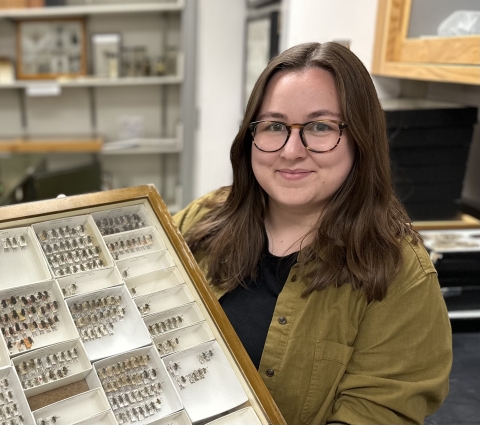Hannah Cook, a third-year PhD student in the Entomology Department at Washington State University, is on a mission to uncover the hidden diversity of bees. Supported by the Seattle ARCS Chapter, Cook’s research focuses on the vast array of bee species beyond the well-known honeybee, aiming to improve taxonomic methods and enhance conservation efforts.
Bees are a remarkably diverse group of organisms, comprising approximately 21,000 species worldwide. While most people are familiar with honeybees, most bee species are solitary and nest underground. In fact, an estimated 200 new species are described each year. Cook’s research is twofold: describing new species and refining the methods used to classify them.
“In order to make informed conservation decisions, we have to know what life exists on this planet,” Cook explains. “You can’t conserve something if it doesn’t even have a name.”
To achieve this, Cook employs genome sequencing technology to analyze the genetic relationships between species. By building a comprehensive “tree of life,” her work provides insight into how different bee species are connected. The goal is to improve classification methods and ensure species are accurately identified.
“My research is characterizing the role of repetitive DNA in genome evolution among bees,” Cook says. “Understanding this variation will help us better classify species and comprehend how they have evolved.”
By investigating the presence of repetitive DNA across different bee species, Cook hopes to contribute to a broader understanding of genome function and evolution. Her work may also inform conservation efforts by highlighting genetic factors that influence species adaptation and survival.
Cook’s fascination with insects began in college. While working on digitizing a professor’s entomology collection, she was captivated by the incredible diversity of bees.
“I was amazed by how many species there are beyond honeybees,” Cook recalls. “They can be bright in color, tiny like a couple of millimeters, or as large as two inches. That experience really inspired me to study bees more deeply.”
Her work in entomology collections also underscored the importance of making these vast repositories of insect specimens more accessible to researchers and the public. By digitizing specimens and improving classification techniques, Cook hopes to bridge the gap between entomology and conservation.
Cook credits ARCS funding with providing the financial stability needed to focus on her research.
“Graduate students typically aren’t paid very highly,” she notes. “Having this support allows me to dedicate more time to my studies and feel more secure in my work.”
In addition to financial support, Cook values the sense of community that ARCS fosters.
“Science funding is uncertain right now, and having a group of people who not only take an interest in my work but also value it enough to contribute monetarily is incredibly meaningful,” Cook says.

